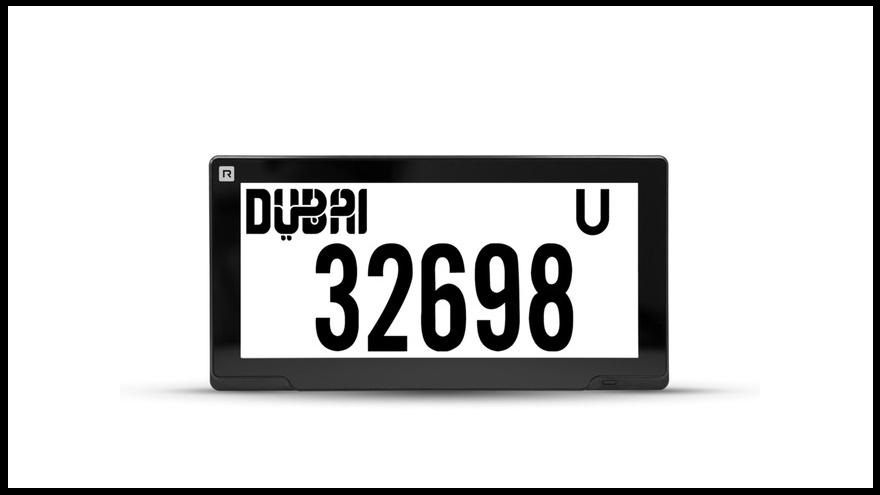Digital license plates are no longer a futuristic vision, as the Roads and Transport Authority (RTA) of Dubai launches a world-first pilot.
The digital ‘smart’ plates come with a bistable, digital screen, similar to that on an e-book, that can display updates on weather and road conditions alongside traditional license plate details.
The RPlate Pro plates are designed by Californian start-up, Reviver Auto, are already being used on a small scale throughout the United States.
Reviver Auto CEO, Neville Boston, said the Dubai deal was an important step in bringing digital plates to the rest of the world.
“The global adoption of the Rplate Pro coincides with our mission to establish a universal connected vehicle innovation platform and this program will prove our ability to be a robust solution and first in this market,” he said.
“We’re not just reinventing the connected vehicle ecosystem; we’re building safer and more connected communities one license plate at a time and are thrilled to be part of Dubai’s Smart City initiative.”
The plates are set to ease some of the administrative hassle that has become synonymous with car ownership, with features including automated registration renewals and payment options for fines and tolls.
They are also embedded with a GPS tracker, allowing the RTA to provide more accurate traffic updates and track stolen vehicles.
However, there are concerns the innovative tracking feature could also pose a privacy risk for drivers.
The Dubai pilot will begin in May and continue through to November, with vehicles to be fitted out with the smart plates.
It comes as Dubai continues its push to become one of the world’s leading smart cities.
CEO of the RTA’s Licensing Agency, Abdullah Yousuf Al Ali, said the pilot was another key initiative for the city.
“The testing of these plates underscores the keenness of the RTA to keep abreast of the latest technologies, and its relentless efforts to support the directive of the Dubai Government through the future foresight strategy, and the Smart City initiative,” he said.
Late last year, it was announced that large drones were being looked at as a possible taxi service, to ease congestion in the city.
The world’s first ‘RoboCop’ was also deployed in the city last year.










